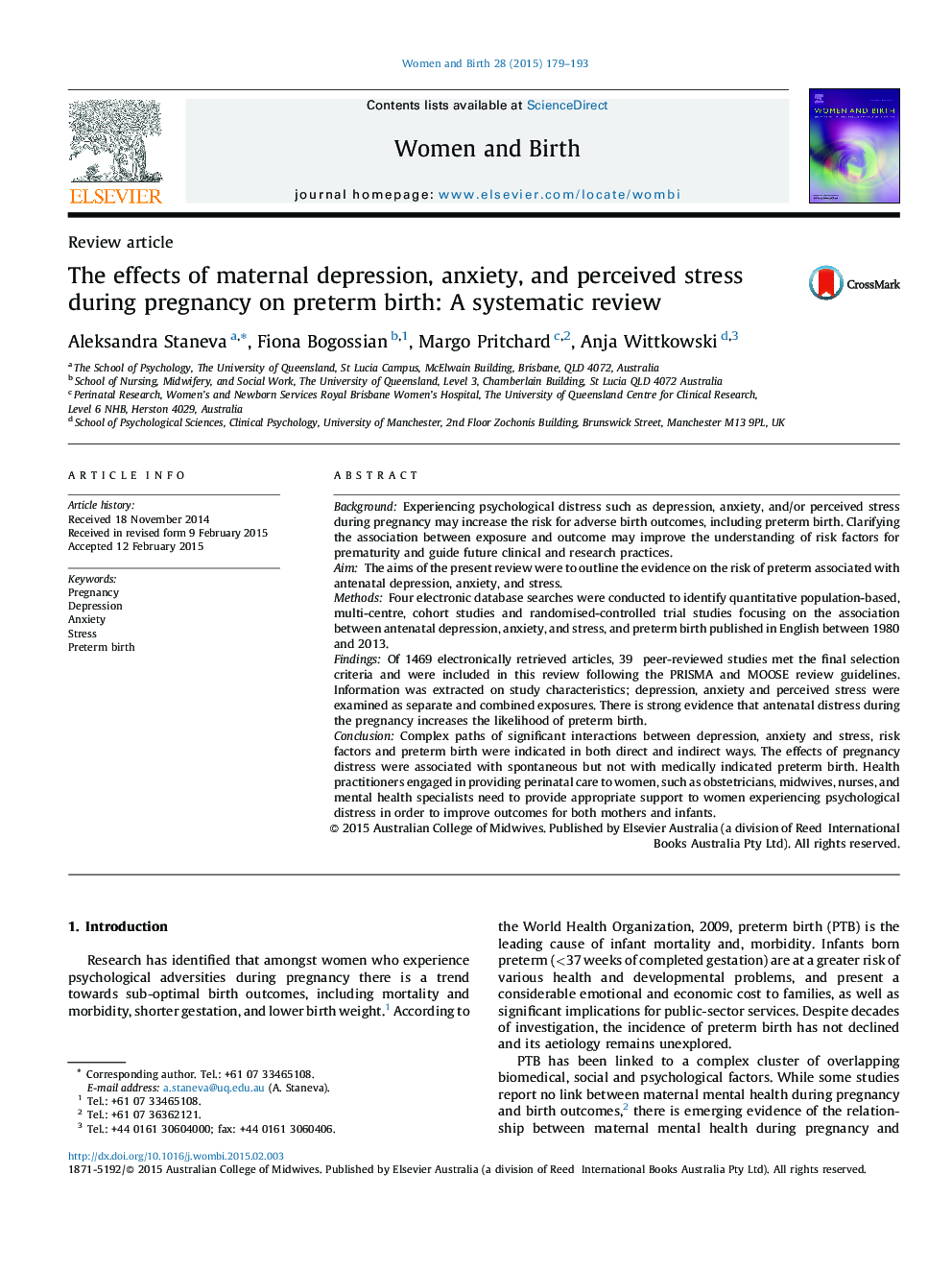| Article ID | Journal | Published Year | Pages | File Type |
|---|---|---|---|---|
| 5866155 | Women and Birth | 2015 | 15 Pages |
BackgroundExperiencing psychological distress such as depression, anxiety, and/or perceived stress during pregnancy may increase the risk for adverse birth outcomes, including preterm birth. Clarifying the association between exposure and outcome may improve the understanding of risk factors for prematurity and guide future clinical and research practices.AimThe aims of the present review were to outline the evidence on the risk of preterm associated with antenatal depression, anxiety, and stress.MethodsFour electronic database searches were conducted to identify quantitative population-based, multi-centre, cohort studies and randomised-controlled trial studies focusing on the association between antenatal depression, anxiety, and stress, and preterm birth published in English between 1980 and 2013.FindingsOf 1469 electronically retrieved articles, 39 peer-reviewed studies met the final selection criteria and were included in this review following the PRISMA and MOOSE review guidelines. Information was extracted on study characteristics; depression, anxiety and perceived stress were examined as separate and combined exposures. There is strong evidence that antenatal distress during the pregnancy increases the likelihood of preterm birth.ConclusionComplex paths of significant interactions between depression, anxiety and stress, risk factors and preterm birth were indicated in both direct and indirect ways. The effects of pregnancy distress were associated with spontaneous but not with medically indicated preterm birth. Health practitioners engaged in providing perinatal care to women, such as obstetricians, midwives, nurses, and mental health specialists need to provide appropriate support to women experiencing psychological distress in order to improve outcomes for both mothers and infants.
